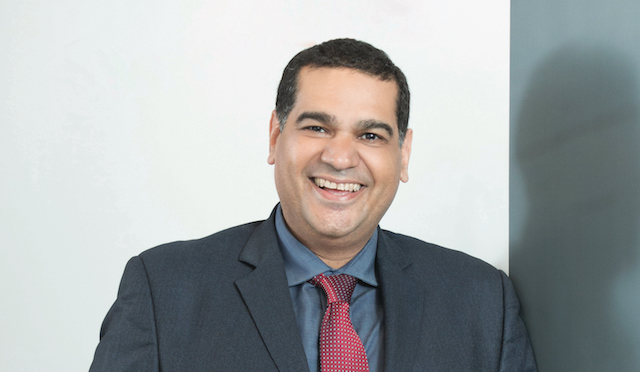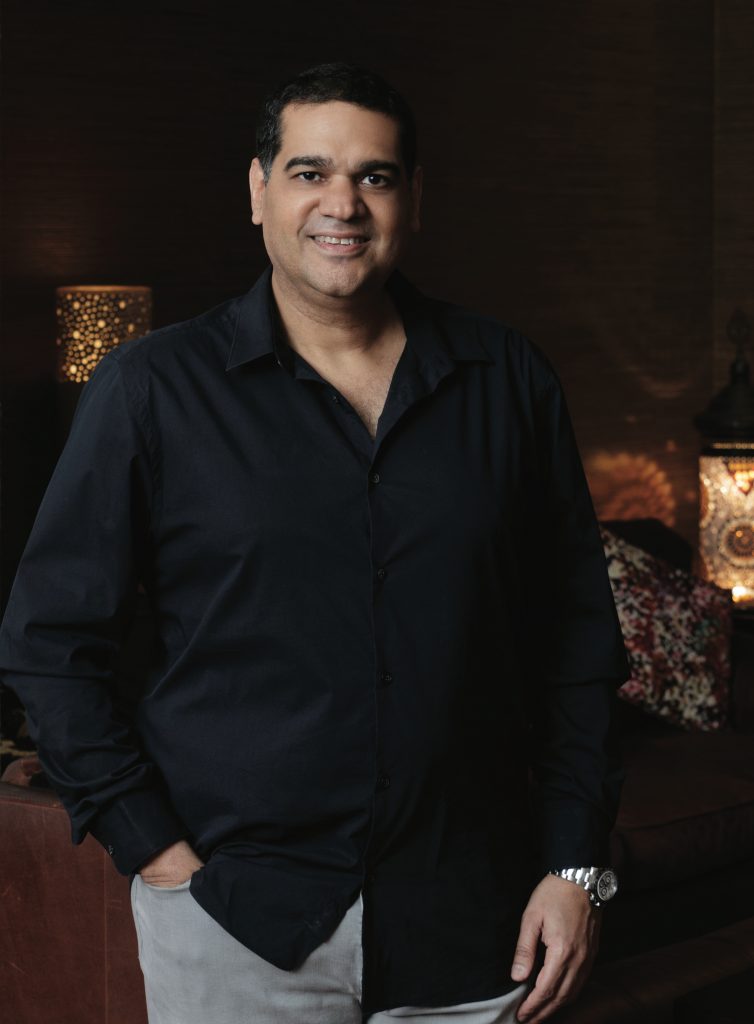Automotive entrepreneur Sutheep Ratnabhas leads the Asian sector of Maxion Wheels.
By Shruti Kothari
Breaking away from tradition is never easy. Sutheep Ratnabhas, Managing Director and Vice President of Maxion Wheels, decided not to join his family firm, and found success instead in the world of technology. Following his passion taught Sutheep about the importance of mentorship, a concept which he has taken to heart and works to encourage in the generations that follow.
Tell us a bit about the educational path you took to reach where you are today.
I started my early education at Bangkok Patana School, and then moved to Ruamrudee International School, from where I graduated. I went on to get my Bachelor’s Degree in Engineering with a Mechanical Engineering emphasis from the University of Missouri, USA. Ten years later, I went to get my Master’s from Sasin School of Management — this time, my one-year-old daughter attended my graduation. All this seems like a lifetime ago, as I now prepare to send off this same daughter to attend university in Sydney.
It sounds like your family has been a big influence in your life.
Growing up, I was blessed and privileged to be raised in the house I still live in today. I was lucky to be brought up in a loving family that instilled strong values in me.
That’s amazing. Did their support help you as you navigated the working world?
Definitely. Unlike many Thai-Indians of my generation, I was one of the few people who did not join the family business, but instead chose to embrace a professional career. With the exception of the first four years of my career (where I was involved in the production of hard disk drives), the remaining 25 years have involved the automotive sector in some form.
Where did you begin the switch from hard disk drives to the automotive field?
My first venture in the auto sector was 25 years ago, when I started up the Asian operations of a Detroit-based consulting company for strategy, business improvement and systems implementation. This was for both the auto and semiconductor sectors, and I was involved in setting up operations in India, Thailand and China. At that time, having been certified by the Automotive Industry Action Group and the Semiconductor Assembly Council, I was required to travel extensively in the USA and Europe, often for months at a time, working with the likes of Ford, GM, Intel, Texas Instruments and so on.
While the work sounds thrilling, did all of the travelling get exhausting?
After my first daughter was born, I decided to slow down my travels for a short time. I was involved in setting up a production facility for an Australian entrepreneurial start-up with innovative automotive braking technology. After this, I worked for the large, US$8 billion Fortune 100 company, Destaco for 11 years, where I was the Asia President for one of its subsidiaries. This company was involved in material handling and robotic automation for production lines used in the auto sector as well as the nuclear industry. I was brought in to do a turn-around for one of the underperforming businesses in Thailand. Subsequently, I set-up two new manufacturing facilities in China and India for the same company.
How did you make the shift over to Maxion Wheels?
They approached me with the exciting offer to run their Asian operations with manufacturing facilities in India, Thailand, and China. This company is the world’s largest truck and passenger wheel supplier — both steel and aluminum. One in every eight vehicles sold in the world today have our wheels on them. The Asian footprint, which I am responsible for, employs 1,800 employees, and produces an excess of eight million wheels.
Why did you choose to work in the wheels business versus any other component of the car?
That is an interesting question. We are seeing changes in the automotive industry that we have never seen before. There are four big industry trends in particular: electrical cars, autonomous/self-driving cars, connected cars and ride sharing. Despite all these changes, one common denominator remains the same – the wheel. Imagine if you are a diesel engine manufacturer for the auto sector, your days are quite limited given the trend towards clean energy. The wheel, however, isn’t going anywhere.
Does it ever get boring to just be working on wheels?
No! Although the old saying goes “don’t reinvent the wheel,” we continuously innovate in our business in order to remain the market leader. Our new “smart” wheels have many features and sensors for today’s connected cars, and we consistently redefine and push the boundary of the wheel, as we continue to reinvent ourselves.
If you weren’t working in this industry, what would you be doing?
From a career perspective, I cannot imagine doing anything else that I would be this passionate about.
You are at the helm of your business in Asia. Do you have any plans for expansion?
We currently have four plants in Asia — two in India, one in Thailand and one in China. In 2019, we have three major expansions planned. We are setting up a new aluminum wheels plant in India (our third there), expanding the capacity of our plant in Thailand, and are looking to set up a second plant in China. The automotive growth in Asia continues to positively drive our business.
What has surprised you the most about your industry or about being a businessman?
I believe two statements continue to ring true for me in both my personal and professional life: “success breeds complacency” and “the only certainty in life is uncertainty.” On the professional front, the auto sector is perhaps one of the most dynamic businesses and a great indicator of how the economy is faring. With all the vicissitudes in the world, we have to continually adjust and reinvent ourselves repeatedly. Change is inevitable. Our inability to adjust to change at a fast pace will leave us behind… what got us here may not get us there. To succeed, we must embrace change.
Do you have any guiding principles related to your career that you can share with us?
I have three guiding principles I follow, and I believe they have served me well: a commitment to performance, a commitment to integrity, and a commitment to change.
Did you have any mentors to help you through your career?
In my own life and career, I have had numerous mentors, most of them accidental, and many of them were unaware that I saw them as mentors. All mentor/mentee relationships have their own vibe. I am lucky to have had some terrific mentors who have helped me build confidence. I was reflecting on my relationships with them, and the best of them, those who truly prompted change, ask questions a lot more than they share advice. I noticed the great mentors in my life all come back to the same three questions, which I will share in their own words: What is down the road if you follow this path? What is getting in your way? Who can I introduce you to that might help overcome that?
Do you have any advice for aspiring entrepreneurs?
Patience…patience…patience…
If you could have dinner with any living celebrities, who would they be?
The Dalai Lama: The United States Institute of Peace (USIP) has trained hundreds of youths worldwide who have founded or who currently lead local efforts to build peace in countries afflicted by bloodshed. Since 2016, His Holiness the Dalai Lama has collaborated with USIP to mentor — and, as he says, to learn from — these youth peace-builders. Few world leaders can understand their experience as fully as the Dalai Lama, who at age 15 was thrust into the leadership of his people as they faced the traumas of war. Like many of the youth leaders he meets through USIP, the Dalai Lama fl ed his country as a refugee and has lived for years in exile. At the same dinner, I would also invite Barack Obama. Outside of politics, he just always seems like a chill guy, someone you would want to sit and have a beer with.
Outside of work, what do you do for enjoyment?
I enjoy reading and have always been a voracious reader. Although I prefer reading fiction, I make a deliberate effort to read at least one non-fiction book every couple of months. My hobby has helped me develop analytical thinking skills and open-mindedness. Reading has also broadened my imagination across horizons.
You have actively been involved with the Thai-Indian Youth Achievement Awards (TIYAA). Can you tell us a little about that?
A group of 10 professionals from different careers came together in early 2018 to form the Thai-Indian Youth Achievement Awards. The purpose was for us to provide a platform for Thai-Indian youth to demonstrate and highlight the great things they have achieved, and to be recognised for their merits in various categories. The goal was then for these youth to in turn become mentors for the younger generation. We had our first event on September 29th last year. During this evening, we were able to recognise over a dozen Thai-Indians who are making a difference in their respective fields. The selection process included interviews, and it was very inspiring to hear the stories of our youth seeking out their passions. We have already started planning for follow-up activities in 2019 for TIYAA. This initiative is very close to my heart because it reminds me of my own journey that started 30 years ago.







